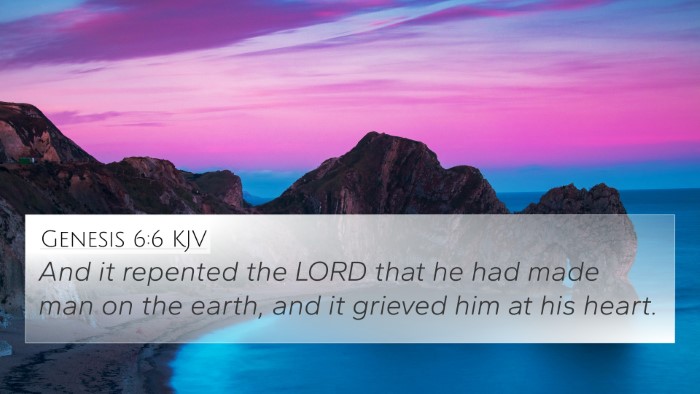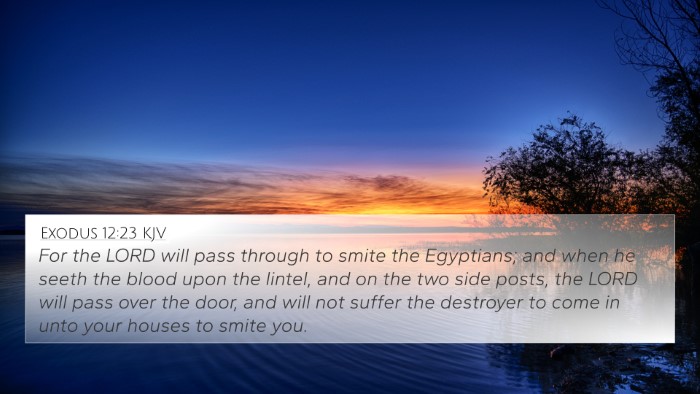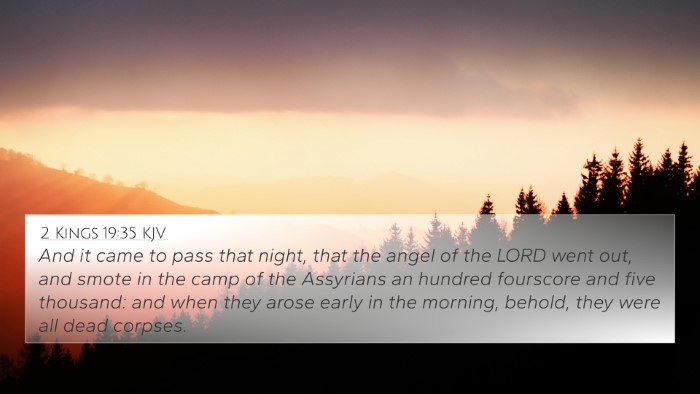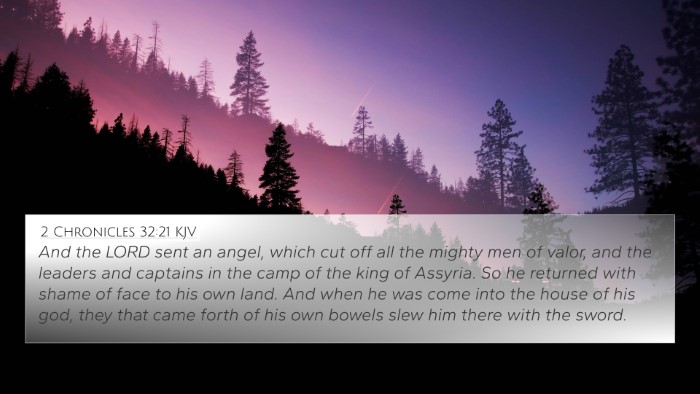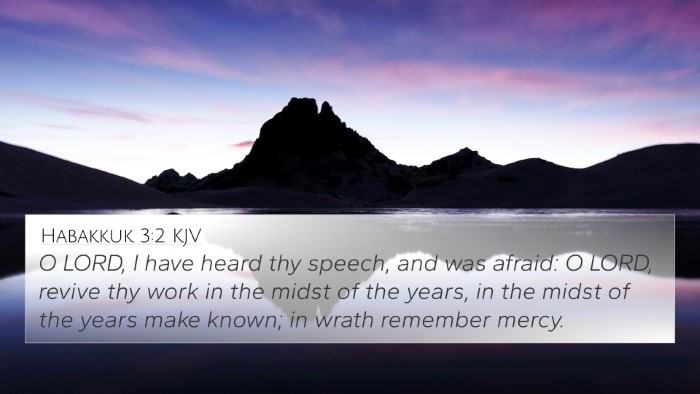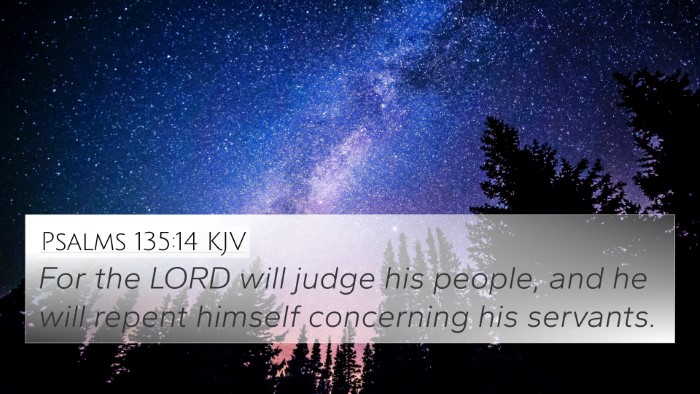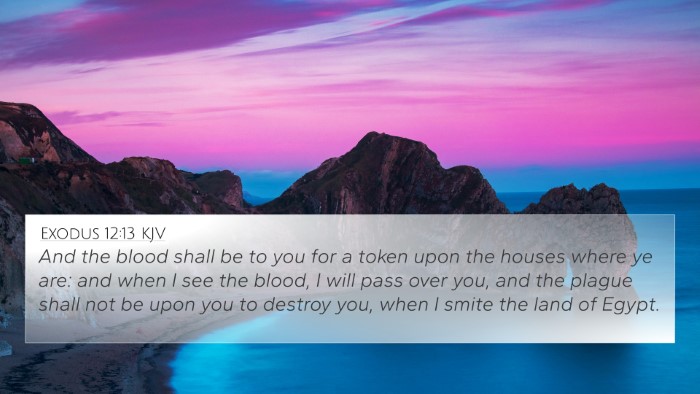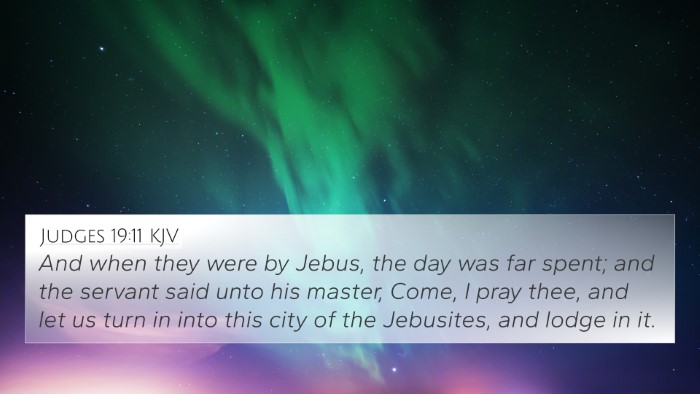Understanding 2 Samuel 24:16
2 Samuel 24:16 states: "And when the angel stretched out his hand upon Jerusalem to destroy it, the LORD repented him of the evil, and said to the angel that destroyed the people, It is enough: stay now thine hand. And the angel of the LORD was by the threshingplace of Araunah the Jebusite." This verse carries profound theological implications that reveal God's mercy, justice, and the intricate relationship between divine sovereignty and human affairs.
Commentary Insights
Drawing from the insightful works of prominent Biblical commentators such as Matthew Henry, Albert Barnes, and Adam Clarke, we can gather a multifaceted understanding of this verse:
Matthew Henry's Commentary
Matthew Henry emphasizes God's sovereign control over judgment and mercy. He notes that even in moments of impending wrath, God is motivated by compassion. When the angel is poised to strike Jerusalem, God's heart changes, highlighting His readiness to receive a repentant spirit among His people. This act of repenting signifies that God listens to the intercessions of His people and alters His course of action—a demonstration of divine mercy.
Albert Barnes' Commentary
Albert Barnes elaborates on the idea of divine intervention. He points out that the angel was executing divine judgment as a direct consequence of King David's sin of numbering the people. However, God’s prompt to stay the hand of the angel showcases His ability to limit the consequences of human actions. Barnes insists that the term "repented" here should not be taken in a human context but reflects God's nature of withholding punishment when His people show humility and repentance.
Adam Clarke's Commentary
Adam Clarke explores the significance of the location—the threshingfloor of Araunah the Jebusite—as a place marked for divine grace. He connects this event to the eventual site of the future Temple, suggesting that mercy often leads to redemption and hope for future generations. Clarke's commentary emphasizes that God’s mercy in this instance spares Jerusalem—a pivotal moment that plays into the larger narrative of God's ongoing relationship with His chosen people.
Theological Implications
Overall, 2 Samuel 24:16 encapsulates the tension between divine justice and mercy. It reminds believers that:
- God is in control of human history and responds to prayer and repentance.
- Even in judgment, God's heart is inclined toward mercy.
- Location and context in biblical events can signify deeper sacramental truths.
Bible Verse Cross-References
This verse connects profoundly with several scriptures that echo its themes of mercy and repentance. Below are key Bible cross-references noteworthy for understanding interconnections:
- Exodus 32:14 - God relenting from disaster against His people post-Moses' intercession.
- 1 Chronicles 21:15 - A parallel account of the angel being sent to destroy Jerusalem.
- Isaiah 54:9 - "For this is like the waters of Noah to me; for as I have sworn that the waters of Noah should no more go over the earth; so have I sworn that I would not be wroth with thee, nor rebuke thee." Highlights God's enduring mercy.
- Jeremiah 18:8 - Demonstrates God's willingness to repent from the planned destruction if the people turn from their evil.
- Matthew 5:7 - "Blessed are the merciful: for they shall obtain mercy." A reminder of the beatitude related to divine mercy.
- Luke 13:34 - Jesus expresses His desire to gather Jerusalem's people, showcasing divine compassion amidst judgment.
- Romans 9:15 - "For he saith to Moses, I will have mercy on whom I will have mercy, and I will have compassion on whom I will have compassion." Encapsulates the sovereign decision of God in dispensing mercy.
Conclusion
In examining 2 Samuel 24:16, we find a profound affirmation of God's responsive nature, His commitment to justice, and the hope of mercy intertwined throughout biblical narratives. Understanding this verse through the lens of cross-referencing with other passages enriches our comprehension of God's character and His interactions with humanity.
Tools for Further Bible Study
For those seeking to deepen their understanding of Biblical cross-references and thematic connections, consider using:
- Bible Concordance: Useful for locating specific terms and their corresponding verses.
- Bible Cross-Reference Guide: Helps in connecting similar themes across different books.
- Cross-Reference Bible Study: Engaging in this method enriches understanding of scriptural dialogues.
- Bible Reference Resources: Various tools available in print and digital formats to assist in exploration.
Final Thoughts
In embarking on your journey of studying 2 Samuel 24:16, may you uncover the richness of God’s Word, recognizing the depth of His mercy, and applying these truths to your life. Engaging in cross-referencing Biblical texts provides clarity and coherence in interpreting diverse scripture themes.





